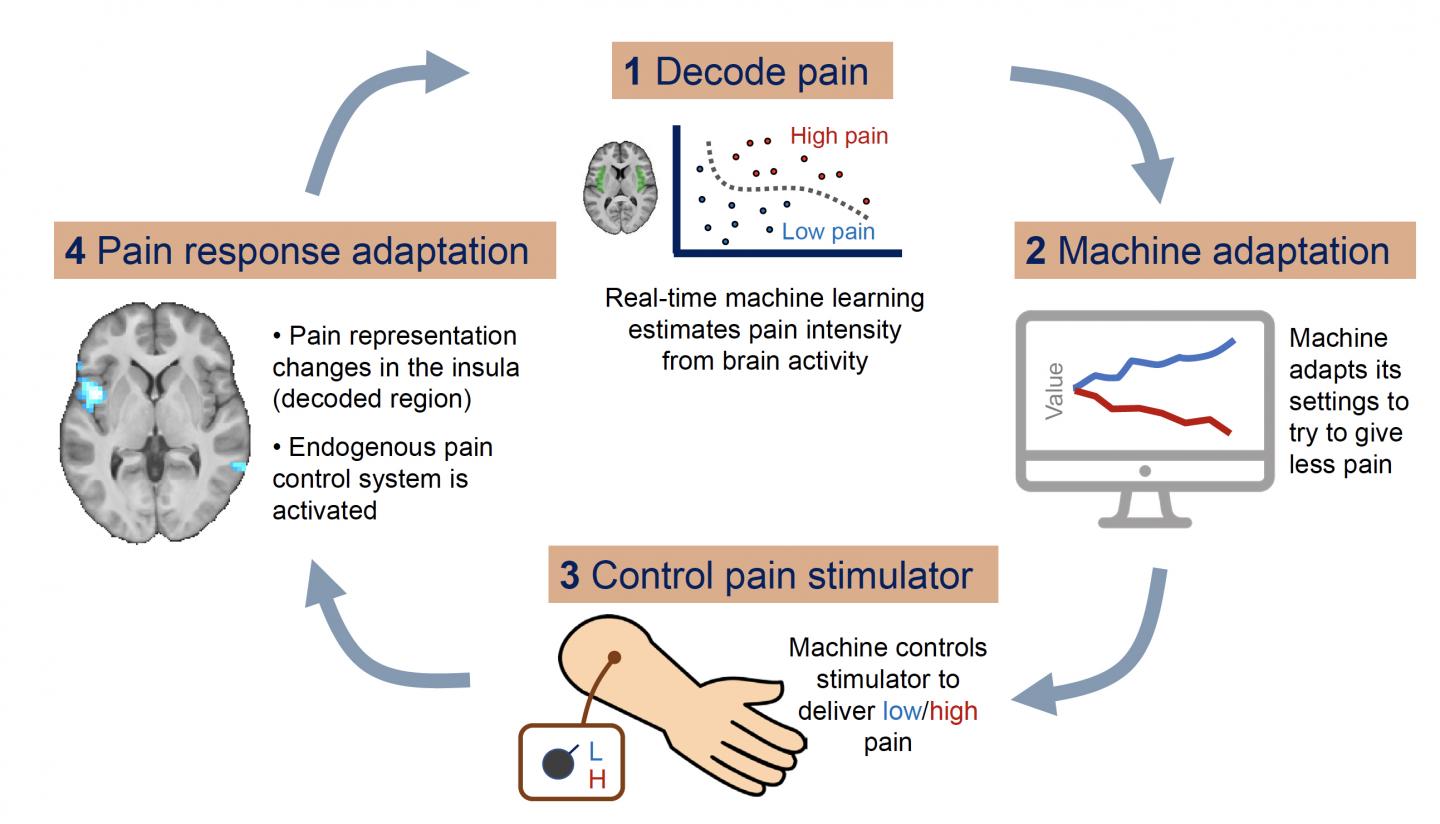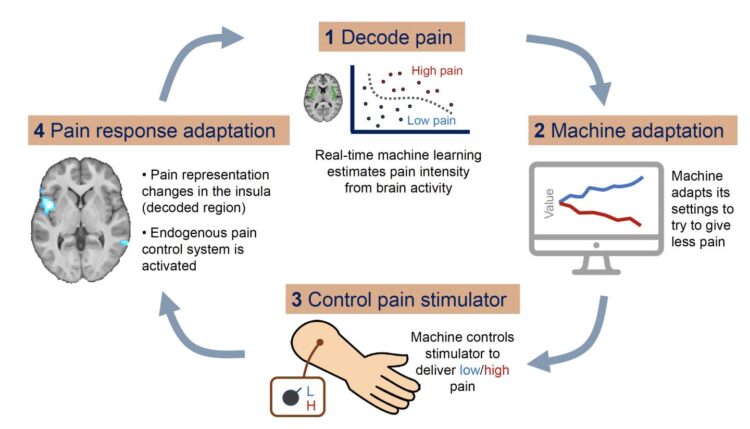A novel neurofeedback treatment may help to treat chronic pain in the future

Credit: (c) Current Biology
Chronic pain is one of the most important health priorities of the 21st century, with a socioeconomic cost that may far exceed other most other medical problems. It is the leading reason why people stop working prematurely, and a leading cause of loss of independence in the elderly leading to requirements for care. And the magnitude of the problem continues to increase as society ages. The lack of effective drugs for pain has led to an urgency to develop new treatments, with technology-based approaches being an potentially important avenue for innovation.
A new approach to treating a range of neurological and psychiatric treatments is Decoded Neurofeedback (DecNef), in which patients aim to control how information is encoded in their brain using neurofeedback of their brain activity measured using functional neuroimaging. The AMED Nou-Pro project has been exploring applications of DecNef to several conditions, and here we report a preliminary study into the feasibility of using DecNef to control pain.
The study, published in the forthcoming issue of Current Biology, is a preclinical study that aimed to see if pain is potentially controllable by DecNef. We designed a new type of DecNef paradigm, in which volunteers had to try and make the pain ‘clearer’ in their mind, to help a computer read how much pain they were in by studying their brain activity. If the computer could read their pain well, it could work out how to give them less pain later in the experiment.
We found subjects were not easily able to directly control their pain activity in the brain, suggesting that conventional DecNef for pain might be difficult. But instead we found that DecNef had a different effect: it seemed to be boosting the brains’ natural ability to control pain – by enhancing a system caused the ‘endogenous pain control system’. This system is the system that normally tunes how much pain is felt, and allows us to naturally reduce our pain in a wide variety of everyday situations. Importantly, this system seems to be dysfunctional in chronic pain, and so DecNef might provide a way to boost this system to treat pain.
###
Media Contact
Mieko Namba
[email protected]





